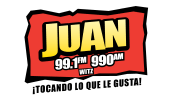Patoka Sportsman 2-27-21
Patoka Sportsman 2-27 & 2-28-21
You can Join the DNR to improve fish habitat at Patoka Lake through a volunteer habitat structure build day on March 13. As reservoirs age, the number and type of hiding places for fish decrease. The Reservoir Habitat Enhancement Program addresses this issue and works to build fish habitat where natural structure is lacking. Fish habitat structures built out of pallets are one option to improve the complexity of the habitat at Patoka Lake.
The pallet structure build will take place at the Patoka Lake Jackson boat ramp parking lot. The ramp is located on the northern part of Patoka Lake in Orange County. The ramp is located along S Co Rd 1075 W. Refer to this map to find the Jackson boat ramp: https://www.in.gov/dnr/parklake/files/patoka_trail.pdf
Please bring cordless drills, work gloves, and protective eyewear. Tools are not required to attend, but only a limited number of tools will be available for use. Pallets and other building materials will be provided. Please bring masks, dress for the weather, and wear long pants and close-toed shoes. Don’t forget snacks and drinking water. Registration is recommended to ensure a socially distanced event. To register, visit https://bit.ly/3qhpFVJ. To learn more about the Reservoir Aquatic Habitat Enhancement Program, visit wildlife.IN.gov/7665.htm
The St. Anthony Conservation Club will hold their 10th Annual 3D 30 target Archery Expo on Saturday, March 27. 3D registration is from 8AM – 1 PM. Raffle and activities will run from 8AM – 3:30 PM. The event will follow current CDC guidelines. There is a $10 entry fee. If shooters are 10 or younger they can shoot for free. Shooters will be entered for a chance to win a St. Anthony Mill mineral package. Prizes will be awarded including a prize target shooting for over $3,000 in prizes. An official scorer will also be there. Food and drinks will be available. Make sure to check out the on-site vendors, DNR, new truck & ATV displays. Bowhunter Magazine founder M.R. James will also be there to share stories. Tickets are available on site or from any club member. For more information follow St. Anthony Conservation Club on Facebook or call 812-630-1670.
The Indiana State Trappers Association is sponsoring a habitat and Predator management Class March 20 starting at 9 AM EST at the Duff Conservation Club. Topics covered include: habitat management, benefits of predator management, predator calling and predator trapping. You will be outside so dress for the weather. For more information contact Matt Badger at 765-615-2394. Cost is $35 for adults. Kids 16 and under are $20. There will be a limit of 25 students. Lunch will be provided.
Spencer County will have a Hunter Education Class at the Chrisney 4 H Center on Hwy 70 Friday, April 9th 6:00 PM to 8:30 PM (CST) AND Saturday, April 10th from 7:00 AM to 3:00 PM (CST). Students MUST attend both classes to receive their certificate. The class and materials are free and classes are conducted by local Conservation Officers and certified volunteer instructors. State protocols will be enforced; face masks will be required, hand sanitizer will be available and social distancing will be used. Bring snacks and/or drinks, pencils and highlighters. Lunch will not be provided. Seats are limited; register at passitonindiana.com before Thursday, April 8 6:00 PM. Any questions contact [email protected]. Another class will be held on Saturday, March 20 and Sunday, March 21 at the Crawford County Community Park in Marengo. Anyone born after December 31, 1986 is required to be certified in Hunter Education before they can purchase a hunting license.
The Ohio River Valley Chapter of Whitetails Unlimited will hold a banquet on Saturday, March 13 at the Harrison County Fairgrounds in Corydon. Games, raffles and social hour will begin at 5 PM with dinner served at 6:30. Tickets are $45 for a single and $25 for your spouse. Ticket deadline is March 12. A Whitetails Unlimited membership is included with a single ticket purchase. If you’re interested in becoming a corporate sponsor or other level sponsor you can do so. There will be several raffles that night plus a youth guided hunt will be given away. Anyone interested in going or for more information can call 812-968-5060.
Indiana is blessed with unique places and remarkable natural features. From state parks to forests to lakes, this passport includes 59 outdoor locations to explore. It's free to sign up. All you need to do is check in to one of the passport locations, and you are on your way to earning prizes. The more you visit, the more you win. You can also qualify for a grand prize giveaway and specific drawings throughout the year. This program is 100% free, but property entrance fees apply when you visit.
Prizes include:
• sign up week decals/stickers
• 10 visits sunglasses
• 25 visits water bottle
• 40 visits trucker hat
• All 59 places backpack
There will also be some special promotions each season of the year, and we’ll be giving away some annual passes, gift cards and Outdoor Indiana magazine subscriptions as a part of that.
The restaurants at Abe Martin Lodge, Clifty Inn, Canyon Inn, Potawatomi Inn, Spring Mill Inn and Turkey Run Inn are currently open to dine-in service. Seating capacity is limited, based on county COVID-19 restrictions. The Garrison Restaurant at Fort Harrison remains closed at this time to dine-in service, but delicious carry out options are available.The buffets remain closed in all locations, but there is plenty of great food on each menu. State Park Inn/Lodge conference facilities are also open for meetings and gatherings with limited capacity based on county COVID-19 restrictions as well.
You can help Indiana’s warblers, bats, salamanders, and other wildlife by donating to the Indiana Nongame Wildlife Fund when you file your 2020 state taxes. Funds have been used to recover species like the bald eagle, which was removed from Indiana’s endangered species list last fall. The Indiana Nongame Wildlife Fund supports more than 150 Species of Greatest Conservation Need. “Nongame” means species that are not hunted, trapped, or fished.
Donate all or a portion of your state tax refund to the Nongame Wildlife Fund by marking the appropriate boxes on your 2020 Indiana tax forms or when filing electronically. Watch a video on how to fill out the form. To donate, fill out Line 1 of Schedule 5/Schedule IN-DONATE form with “Indiana Nongame Wildlife Fund”, enter the three-digit code “200”, and then enter donation amount on Line 17 of the main IT-40 form. Interested in learning more about Indiana’s most imperiled species and the work DNR is doing to save them? Consider subscribing to Nongame Wildlife Fund News.
This year's four Free Fishing Days are May 2, June 5-6, and Sept. 25. Indiana residents do not need a fishing license or a trout stamp to fish in public waters on these days. Free Fishing Days are a great opportunity to give fishing a try or share fishing with a friend or family member.
Brown County State Park’s recent addition to the National Register of Historic Places makes it the state’s largest historic district.Listing as a historic district recognizes an area that has a high degree of historical integrity in its buildings, structures, and landscapes. To be eligible, a district is required to have been associated with events, developments, or people that were important in the history of the state or country. In addition, districts on the National Register must be at least 50 years old and look much the way they did in the past.
Spring is fast approaching, and soon young wildlife will be noticeable statewide. If you find young wildlife, remember:
- Adult animals rarely abandon their young. The parent may be out searching for food. Leaving young unattended is normal for many species.
- Do not hover to see if a parent comes back. Give the baby animal space and only check back periodically. Adult animals will not return if a person is standing nearby.
- Young wildlife should not be handled. They can carry diseases or parasites and are capable of inflicting damage by biting or scratching. Human scent can also alert predators to a young animal’s presence.
While rescuing young wildlife is legal, keeping them is not. Truly orphaned or injured wild animals must be given to a permitted wildlife rehabilitator within 24 hours to maximize their chance of survival.
Large areas with turf grass, waterbodies, and food sources create ideal habitat for Canada geese, potentially leading to human-goose conflict. Most conflicts occur during the nesting season from March to June. If you see a goose exhibiting aggressive behavior, give the bird and its nest some space and calmly leave the area. Injuries resulting from human-goose conflicts most often occur when people run from geese.
Prior to nesting, harassment techniques can be implemented without a permit so long as the birds are not harmed and local ordinances are not violated. Harassment techniques can be audial, visual, or physical. If a Canada goose nest does not have eggs or birds in it, it can be destroyed without a permit. The nest must not be kept. Once eggs have been laid, no further action can be taken without first registering with the U.S. Fish and Wildlife Service. Remember, efforts to deter Canada geese are not effective if supplemental foods such as bread or bird seed are being provided.
Nature provides a place to have fun, connect with our thoughts and find peace of mind. For this reason and many others, it is imperative that everyone have access to the outdoors. Thanks to a kind and generous donor, McCormick’s Creek State Park now offers guests access to a Grit Freedom Chair.




